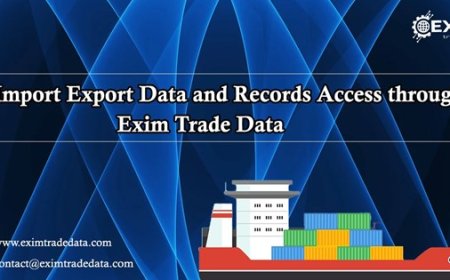How to Choose the Right Employee Management System for Your Company
An Employee Management System is a software solution that helps businesses streamline and automate various HR and administrative tasks related to managing their workforce. From tracking employee information and managing payroll to handling performance evaluations and attendance records, this system centralizes all employee-related data, making HR processes more efficient, accurate, and accessible.
In today's fast-paced business environment, managing human resources effectively is not just about hiring and firing. It involves multiple tasks like onboarding, maintaining employee records, tracking time and attendance, managing benefits, handling grievances, and ensuring compliance with labor laws. An Employee Management System takes the burden off HR teams by automating many of these functions, allowing them to focus on more strategic initiatives that drive business growth.
Core Features of an Employee Management System
-
Employee Data Management
One of the fundamental components of an Employee Management System is maintaining a centralized database of employee information. This includes personal details, job roles, department assignments, salary history, and performance records. With everything in one place, HR professionals can easily access and update data without sifting through paperwork or spreadsheets. -
Attendance and Leave Tracking
Traditional attendance management can be time-consuming and prone to errors. An Employee Management System offers automated time tracking, leave management, and shift scheduling. It allows employees to log in and out digitally, request time off, and view their remaining leave balance, all through a self-service portal. -
Payroll Management
Payroll processing becomes much simpler with automation. These systems calculate salaries, deductions, bonuses, and taxes automatically based on pre-set rules. They also generate payslips and ensure timely payments, which reduces the chance of errors and improves employee satisfaction. -
Performance Evaluation
Regular employee appraisals and performance reviews are essential for growth and development. An Employee Management System provides tools for setting goals, tracking achievements, and conducting evaluations. This helps managers give constructive feedback and make informed decisions regarding promotions or training needs. -
Onboarding and Offboarding
A structured onboarding process improves employee retention and productivity. These systems can guide new hires through necessary steps, such as filling out paperwork, setting up accounts, and completing training modules. Offboarding is similarly streamlined to ensure compliance and knowledge transfer. -
Compliance and Reporting
Staying compliant with labor laws and regulations is critical. An Employee Management System helps by generating accurate reports, storing essential documents, and sending alerts for important deadlines, such as license renewals or mandatory training sessions.
Benefits of Using an Employee Management System
-
Increased Efficiency
Automation eliminates repetitive tasks and reduces the time spent on administrative work. HR staff can redirect their efforts toward strategic planning and employee engagement initiatives. -
Data Accuracy and Accessibility
Centralized data storage ensures that information is up-to-date and reduces the risk of human error. Authorized personnel can access the data anytime, from anywhere, making remote work and decentralized teams easier to manage. -
Improved Employee Experience
A self-service portal empowers employees to manage their personal information, check leave balances, submit requests, and view payslips without needing constant HR intervention. This transparency builds trust and improves overall job satisfaction. -
Scalability
As businesses grow, manual systems become increasingly unmanageable. An Employee Management System can easily scale to accommodate more employees, departments, and locations without requiring a complete overhaul of processes. -
Cost Savings
Although there is an initial investment in implementing such a system, the long-term savings are significant. Reductions in paperwork, processing time, and compliance risks lead to lower operating costs and a higher return on investment. -
Enhanced Decision-Making
These systems often come with analytics and reporting features that provide valuable insights into workforce trends, employee turnover, productivity, and more. This data helps managers make better decisions regarding hiring, training, and development.
Why Your Business Needs an Employee Management System
Regardless of the size of your company, managing employees effectively is critical to success. An Employee Management System ensures that your HR operations are organized, consistent, and aligned with your business goals. It helps foster a positive workplace culture by giving employees the tools they need to succeed and supporting managers with data-driven insights.
With the growing complexity of labor laws, the need for timely and accurate payroll, and the shift toward remote and hybrid work models, investing in a reliable Employee Management System is no longer optionalits essential. Businesses that embrace this technology gain a competitive edge by improving efficiency, enhancing employee engagement, and ensuring long-term sustainability.
In summary, an Employee Management System is not just a tool for HRit is a strategic asset that enables your organization to thrive in an increasingly complex and competitive business landscape.





























